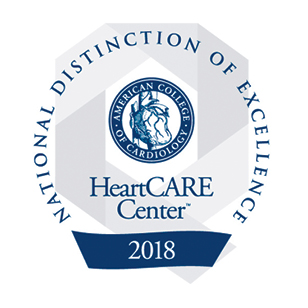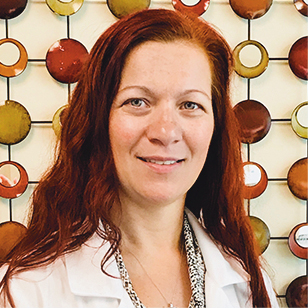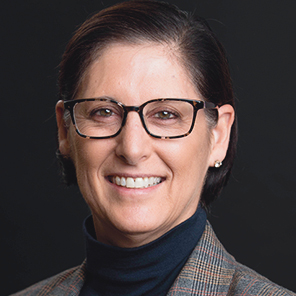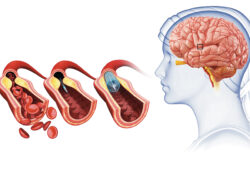HealthTrust members demonstrate clinical excellence with Cardiac COE accreditation

 Conemaugh Memorial Medical Center in Johnstown, Pennsylvania, is located in a very rural area of the state. Patients often have to travel great distances for cardiac care, says Genevieve Everett-Sigwalt, M.D., a cardiologist with Conemaugh Memorial Medical Center. Before they invest in making the trip, patients want to know they’ll be getting comprehensive, quality care.
Conemaugh Memorial Medical Center in Johnstown, Pennsylvania, is located in a very rural area of the state. Patients often have to travel great distances for cardiac care, says Genevieve Everett-Sigwalt, M.D., a cardiologist with Conemaugh Memorial Medical Center. Before they invest in making the trip, patients want to know they’ll be getting comprehensive, quality care.

To help make this pledge to patients, Conemaugh Memorial Medical Center sought accreditation to become a cardiac Center of Excellence (COE). In late 2018, the hospital earned the HeartCARE Center Award, which is a national distinction from the American College of Cardiology (ACC). It was the first hospital in the southwest region of Pennsylvania and the fifth hospital in the nation to receive this award.
“Having that designation lets patients know that it’s a place they can come to that’s worth the ride. It has all of the team members they need in order to get care for various cardiac issues from one facility,” says Dr. Everett-Sigwalt, who is also a HealthTrust Physician Advisor.
The value of the COE accreditation
In 2015, over 40% of Americans had at least one cardiovascular (CV) condition, a number that is expected to reach nearly 50% by 2035, according to the American Heart Association (AHA) Cardiovascular Disease Burden Report. In 2016, cardiovascular disease (CVD) cost the U.S. healthcare system $555 billion, according to the same report. This cost is projected to reach $1.1 trillion by 2035.
Medical costs for CV conditions and related procedures are skyrocketing. In order to keep up with rising demand while offering patients the best care possible, many healthcare facilities, like Conemaugh Memorial Medical Center, are pursuing cardiac COE accreditation. Not only can being a COE help a facility refine and improve its service line, but it also gives community members confidence that they’re accessing the best care possible for their CVD.
There is no standardized term for defining a COE, nor is there an official governing body, says Kimberly Wright, RN, AVP of Clinical Data Solutions at HealthTrust. The AHA, The Joint Commission, the ACC and several different independent companies (such as the Accreditation for Cardiovascular Excellence) have COE accreditations. In addition, insurance companies, such as Aetna, Cigna and Blue Cross Blue Shield, have their own COE accreditations.

Because there are many different cardiac COE accreditations, it’s important for facilities to do their due diligence by selecting an accreditation that is not only well recognized, but one that also fits their hospital’s unique needs. Wright says that regardless of which certification a hospital pursues, the accreditation process itself is valuable, as it allows a hospital to have a discerning, objective outsider look at where improvements could be made.
“It allows you to have an external eye come in and look at your program objectively, comparing it against the standards and helping you identify where you might have gaps and where you could improve or standardize care,” she says.
Reliability, credibility & accountability
Being accredited as a COE has a number of benefits, Wright explains. It helps hospitals have a service line approach, establish interdisciplinary collaboration between the various physicians and units, monitor their outcomes, and improve long-term results due to often mandatory participation in databases and registries.
 Community Health Systems’ (CHS) Commonwealth Health Heart and Vascular Institute at Regional Hospital of Scranton, Pennsylvania, was named an inaugural recipient of the HeartCARE Center Award in 2018. Lynn Simon, M.D., MBA, Chief Medical Officer and President of Clinical Operations at CHS, says cardiac accreditation has always been a priority for CHS. In fact, the health system has 111 ACC accreditations across 88 hospitals.
Community Health Systems’ (CHS) Commonwealth Health Heart and Vascular Institute at Regional Hospital of Scranton, Pennsylvania, was named an inaugural recipient of the HeartCARE Center Award in 2018. Lynn Simon, M.D., MBA, Chief Medical Officer and President of Clinical Operations at CHS, says cardiac accreditation has always been a priority for CHS. In fact, the health system has 111 ACC accreditations across 88 hospitals.

Dr. Simon says pursuing these accreditations is a priority for CHS, because having that service line framework demonstrates a commitment to making sure certain standards are met—not only related to physicians, the infrastructure and the cardiac services offered, but also standards as they relate to clinical outcomes.
“I think in some markets, having certain certifications or accreditations provides a nice public perception—both for the community and with payers—related to the commitment to the service line and the commitment to quality,” Dr. Simon says.
She believes having that third-party, objective accreditation offers an additional credibility factor for a hospital. “It’s not just this hospital talking about how good they are, but they actually have a national organization that has put its stamp of approval on the program,” she says. “I think that adds to the reliability and credibility consumers want.”
In addition to its status as an inaugural recipient of the HeartCARE Center Award, CHS’ Commonwealth Health Heart and Vascular Institute at Regional Hospital of Scranton was the first in its market to achieve various other accreditations, such as the Cardiovascular Center of Excellence designation with the AHA. It was also the first in the nation to receive Cardiac Catheterization Lab Accreditation from The Joint Commission.
Striving toward clinical excellence through COE accreditation, Dr. Simon says, has improved both the internal and external perception of the hospital. “The hospital has been very active in the space, and I think it’s been great as far as promoting itself in their market,” she says.
Preparing for CV accreditation
HealthTrust offers several CV services for its members, including cardiac care redesign and cardiac on-site assessments.
The Cardiac Care Redesign team, which Wright leads, goes into HealthTrust member hospitals and assesses their CV service line as if it were being accredited by a governing body, such as The Joint Commission or the ACC. The goal of these HealthTrust services is to prepare hospitals for accreditation should they ever want to pursue it.
“We look at their outcomes, structure and processes they have in place to identify any gaps they might have,” Wright says. “And then we assist them with tools and guidance to help implement the things they don’t have so that if they do want to pursue accreditation, they’re better prepared.”
For more information on HealthTrust care redesign and on-site assessments, contact Kimberly Wright at kimberly.wright@healthtrustpg.com
Share Email Cardiovascular, Centers of Excellence, Q4 2019





